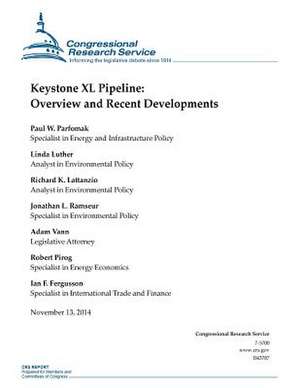Keystone XL Pipeline
Autor Congressional Research Serviceen Limba Engleză Paperback
| Toate formatele și edițiile | Preț | Express |
|---|---|---|
| Paperback (2) | 122.02 lei 3-5 săpt. | |
| CREATESPACE – | 122.02 lei 3-5 săpt. | |
| CREATESPACE – | 122.02 lei 3-5 săpt. |
Preț: 122.02 lei
Nou
Puncte Express: 183
Preț estimativ în valută:
23.35€ • 25.46$ • 19.69£
23.35€ • 25.46$ • 19.69£
Carte disponibilă
Livrare economică 03-17 aprilie
Preluare comenzi: 021 569.72.76
Specificații
ISBN-13: 9781503282643
ISBN-10: 1503282643
Pagini: 24
Dimensiuni: 216 x 279 x 1 mm
Greutate: 0.08 kg
Editura: CREATESPACE
ISBN-10: 1503282643
Pagini: 24
Dimensiuni: 216 x 279 x 1 mm
Greutate: 0.08 kg
Editura: CREATESPACE
